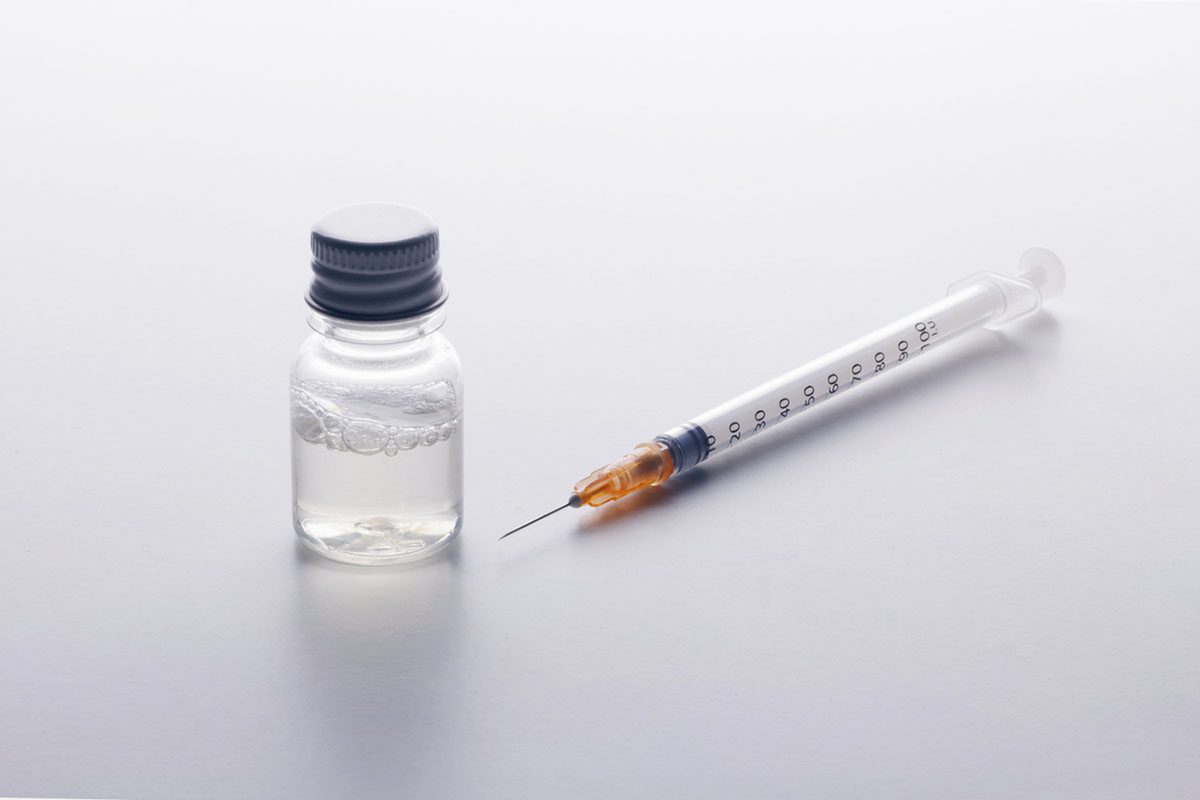Myxedema Madness Rapidly Reversed With Levothyroxine
To the Editor: “Myxedema madness” is a severe, complicated form of psychosis due to significant hypothyroidism. Although literature exists illustrating psychiatric symptoms (eg, depression, lethargy) as a result of hypothyroidism, psychosis associated with hypothyroidism is often overlooked. Additionally, published literature varies on the nature of psychotic symptoms present (eg, Capgras syndrome, delusions, hallucinations), degree of thyroid hormone deficit, and overall treatment of symptoms.1 A majority of case reports illustrate a slow improvement (weeks to months) of psychotic symptoms after administration of thyroid supplementation.1,2 To our knowledge, only 1 report has shown rapid reversal of psychotic symptoms.3 We report a unique case of myxedema madness that was reversed in 5 days after initiation of 100 μg of levothyroxine.
Case report. Ms A, a 51-year-old white woman with a history of hypothyroidism secondary to surgical thyroidectomy (due to hyperthyroidism), was brought to our emergency department (ED) by police because of bizarre behavior. On presentation, the patient was disorganized, delusional, and confused and appeared to be responding to internal stimuli. Minimal history could be obtained at the time of admission due to the patient’s psychosis.
Physical examination upon admission revealed dry, brittle, thinning hair; marked delay in reflexes; and increased sensitivity to cold. Baseline laboratory results revealed a thyroid-stimulating hormone (TSH) level of 176.8 μU/mL (normal 0.35-5 μU/mL) and a total thyroxine (T4) level of 0.8 μg/dL (normal 6.1-12.3 μg/dL). All other laboratory results, including a urine drug screen, were unremarkable. Thyroid tests were repeated the following day to confirm initial findings, with results of 177.4 μU/mL TSH level and 1.0 μg/dL total T4 level. At that time, the patient was started on levothyroxine 100 μg/d, and an endocrine consult was placed. No other medications were scheduled during this hospitalization. The patient did require 1 dose of haloperidol and diphenhydramine in the ED prior to admission.
Two days after levothyroxine treatment was started, Ms A was able to provide a medical history, which revealed discontinuation of her levothyroxine 11 months prior to admission because she felt she no longer required it. Two months after discontinuing her thyroid medication, she was fired from her job due to lack of attendance because she was “waiting for the answers to her prayers.” The patient’s estranged son reported that his mother went “crazy,” exhibiting extreme paranoia, after the death of her husband 8 years prior and has never been the same since his death. The son was unable to provide any additional details regarding the patient’s previous psychiatric history due to lack of involvement in his mother’s life. However, no previous psychiatric hospitalizations or psychiatric medications were reported by the patient or her son.
Within 5 days of starting levothyroxine, the patient showed marked improvement. There were no signs or symptoms of psychosis, and she was discharged home with only levothyroxine 100 μg/d.
Myxedema madness is considered a rare, serious clinical event. However, it is estimated that 5%-15% of myxedematous patients will suffer from some form of psychosis.4 Unfortunately, there are no hallmark signs of psychiatric symptoms in myxedematous patients, and response to therapy can vary. Early literature examined cognitive and behavior symptoms associated with myxedema and found marked differences in response to treatment with respect to age and type of symptoms present.5 Elderly patients with vague hallucinations, cognitive deficits, and mild depression responded better to thyroid treatment than young introverted patients with explicit delusions, who responded poorly to treatment.
In our patient, we started levothyroxine at 100 μg/d. Optimum replacement dosage of levothyroxine for patients with hypothyroidism is 1.6-1.8 μg/kg.6-8 Clinicians often employ the “start low and go slow” method of titrating patients on levothyroxine, with starting dosages around 25-50 μg/d to avoid cardiac side effects. However, recent literature supports starting healthy patients less than 65 years of age at the full replacement dosage to avoid prolonged recovery.7,8 These studies, though, mainly evaluated the risk of cardiac symptomatology. Psychosis and/or symptoms of mania have been reported with aggressive initiation of thyroid supplementation.9 Females, patients receiving dosages greater than 150 μg/d of thyroxine, and patients with a previous history of mental disorder were at the greatest risk for developing psychosis following initiation of thyroid therapy. The risk for worsening psychosis needs to be considered in all patients with a history of mental disorders prior to starting thyroid therapy, and psychiatric symptoms need to be closely monitored after initiation of treatment.
This case illustrates the importance of routine thyroid panels and the need to rule out organic causes of psychiatric symptoms in all patients presenting acutely with psychiatric changes. Additionally, psychosis due to hypothyroidism is reversible and easily treated.
References
1. Heinrich TW, Grahm G. Hypothyroidism presenting as psychosis: myxedema madness revisited. Prim Care Companion J Clin Psychiatry. 2003;5(6):260-266. PubMed
2. Lehrmann JA, Jain S. Myxedema psychosis with grade II hypothyroidism. Gen Hosp Psychiatry. 2002;24(4):275-277. PubMed doi:10.1016/S0163-8343(02)00190-1
3. Cook DM, Boyle PJ. Rapid reversal of myxedema madness with triiodothyronine. Ann Intern Med. 1986;104(6):893-894. PubMed
4. Hall RC. Psychiatric effects of thyroid hormone disturbance. Psychosomatics. 1983;24(1):7-11, 15-18. PubMed
5. Karnosh LJ, Stout RE. Psychoses of myxedema. Am J Psychiatry. 1935;91:1263-1274 .
6. Roberts CG, Ladenson PW. Hypothyroidism. Lancet. 2004;363(9411):793-803. PubMed doi:10.1016/S0140-6736(04)15696-1
7. Roos A, Linn-Rasker SP, van Domburg RT, et al. The starting dose of levothyroxine in primary hypothyroidism treatment: a prospective, randomized, double-blind trial. Arch Intern Med. 2005;165(15):1714-1720. PubMed doi:10.1001/archinte.165.15.1714
8. Vaidya B, Pearce SH. Management of hypothyroidism in adults. BMJ. 2008;337:a801. PubMed doi:10.1136/bmj.a801
9. Josephson AM, Mackenzie TB. Thyroid-induced mania in hypothyroid patients. Br J Psychiatry. 1980;137:222-228. PubMed doi:10.1192/bjp.137.3.222
Author affiliations: Department of Pharmacy Practice (Dr Moeller) and Department of Psychiatry and Behavioral Sciences (Drs Moeller, Goswami, and Larsen), The University of Kansas Medical Center, Kansas City. Financial disclosure: None reported. Funding/support: None reported.
doi:10.4088/JCP.08l04958yel
© Copyright 2009 Physicians Postgraduate Press, Inc.




